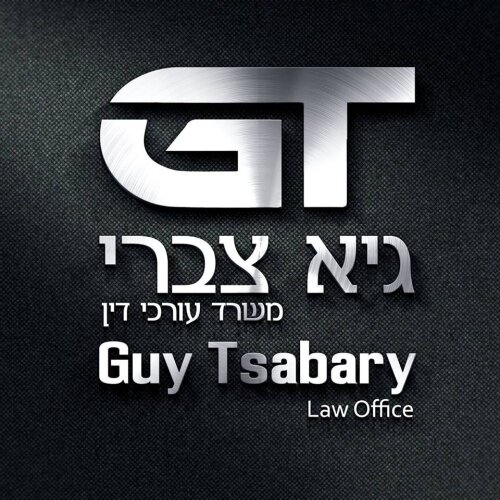Best Bankruptcy Lawyers in Jerusalem
Share your needs with us, get contacted by law firms.
Free. Takes 2 min.
List of the best lawyers in Jerusalem, Israel
About Bankruptcy Law in Jerusalem, Israel
Bankruptcy law in Jerusalem, Israel, is designed to provide relief for individuals and businesses unable to meet their financial obligations. The primary objective is to allow debtors to emerge from overwhelming debt situations while ensuring fair treatment to creditors. The process involves liquidating a debtor's assets to pay off creditors and may also allow for reorganizing a debtor’s financial affairs to facilitate repayment over time. Israel's legal framework for bankruptcy is governed by the Insolvency and Economic Rehabilitation Law, which took effect in September 2019.
Why You May Need a Lawyer
Seeking legal advice in Bankruptcy is crucial for various reasons:
- Complexity: The bankruptcy process involves numerous legal procedures, paperwork, and adherence to strict timelines, which can be overwhelming without professional guidance.
- Asset Protection: A lawyer can help protect your significant assets from liquidation and negotiate more favorable terms with creditors.
- Representation: Legal representation is vital during court proceedings to ensure your interests are adequately represented and your rights are protected.
- Debt Relief Options: An attorney can help explore all available debt relief options, including repayment plans, settlements, and restructuring.
- Compliance: A lawyer ensures you comply with all legal obligations, minimizing the risk of procedural mistakes that could jeopardize your case.
Local Laws Overview
Key aspects of bankruptcy law in Jerusalem, Israel, include:
- Insolvency and Economic Rehabilitation Law: This law aims to balance the need for debtor relief with the need to repay creditors fairly. It emphasizes economic rehabilitation over mere asset liquidation.
- Initiation of Proceedings: Both debtors and creditors can initiate insolvency proceedings. The court oversees the process to ensure fairness and compliance with the law.
- Types of Bankruptcy: Bankruptcy can apply to individuals, businesses, and corporations. Procedures and repercussions vary depending on the entity involved.
- Appointment of a Trustee: An appointed trustee manages the debtor’s estate, oversees the liquidation process, or develops a rehabilitation plan.
- Discharge of Debts: Successful completion of bankruptcy proceedings can lead to the discharge of remaining debts, allowing the debtor to start afresh economically.
Frequently Asked Questions
1. What qualifies a person to file for bankruptcy in Jerusalem, Israel?
Individuals or businesses unable to meet their financial obligations and facing insolvency may qualify to file for bankruptcy under Israeli law. Specific criteria include the total amount of debt, the inability to repay, and a court's determination of insolvency status.
2. How long does the bankruptcy process usually take?
The duration varies depending on the complexity of the case, the extent of the debtor’s assets and liabilities, and any agreed-upon repayment plans. It generally ranges from several months to a few years.
3. Can all debts be discharged through bankruptcy?
No, certain debts, such as child support, alimony, fines, and certain taxes, are generally not dischargeable through bankruptcy proceedings.
4. What is the role of the trustee in bankruptcy?
An appointed trustee manages the debtor’s estate, including liquidating assets to pay creditors, and may develop a rehabilitation plan to assist the debtor's economic recovery.
5. Is there a minimum debt threshold for filing bankruptcy?
Yes, Israeli law stipulates a minimum debt threshold for initiating bankruptcy proceedings. This threshold ensures that only significant insolvency cases enter the court system.
6. Does filing for bankruptcy affect my employment?
Filing for bankruptcy does not directly impact employment, although certain professional licenses may be affected. It is advisable to check specific industry regulations and seek legal advice if concerned.
7. Can a creditor force me into bankruptcy?
Yes, creditors can request the court to declare a debtor bankrupt if they can demonstrate that the debtor is insolvent and unable to meet their debt obligations.
8. What happens to my assets during bankruptcy?
During bankruptcy, non-exempt assets may be liquidated by the trustee to pay off creditors. Exempt assets, as defined by law, are protected and retained by the debtor.
9. Will bankruptcy affect my credit rating?
Yes, filing for bankruptcy significantly impacts your credit rating, indicating financial distress. This can make obtaining future credit more challenging.
10. Can I exit bankruptcy if my financial situation improves?
Yes, if your financial circumstances improve significantly, you can propose a revised plan to repay creditors, potentially allowing for an early exit from bankruptcy proceedings.
Additional Resources
Here are some helpful resources for those seeking legal advice on bankruptcy in Jerusalem, Israel:
- The Israel Ministry of Justice: Provides comprehensive information on bankruptcy and insolvency laws.
- Israeli Bar Association: Offers directories to find qualified bankruptcy lawyers in Jerusalem.
- Consumer Protection and Fair Trade Authority: Advises on consumer rights and protection in bankruptcy cases.
- Local Legal Aid Clinics: Provides pro bono or low-cost legal advice for individuals facing bankruptcy.
Next Steps
If you need legal assistance with bankruptcy in Jerusalem, consider the following steps:
- Consult with a Bankruptcy Lawyer: Seek a professional consultation to discuss your situation and explore your options.
- Gather Financial Records: Collect all relevant financial documents, including debts, assets, income, and expenses, to provide a clear picture of your financial status.
- Understand Your Options: Work with your lawyer to understand all potential avenues for relief, including bankruptcy, debt restructuring, or negotiation with creditors.
- Prepare for Legal Proceedings: Follow your lawyer’s guidance to prepare for any necessary court appearances and meet all legal requirements.
By taking these steps, you can navigate the bankruptcy process more effectively and work toward achieving financial stability and relief.
Lawzana helps you find the best lawyers and law firms in Jerusalem through a curated and pre-screened list of qualified legal professionals. Our platform offers rankings and detailed profiles of attorneys and law firms, allowing you to compare based on practice areas, including Bankruptcy, experience, and client feedback.
Each profile includes a description of the firm's areas of practice, client reviews, team members and partners, year of establishment, spoken languages, office locations, contact information, social media presence, and any published articles or resources. Most firms on our platform speak English and are experienced in both local and international legal matters.
Get a quote from top-rated law firms in Jerusalem, Israel — quickly, securely, and without unnecessary hassle.
Disclaimer:
The information provided on this page is for general informational purposes only and does not constitute legal advice. While we strive to ensure the accuracy and relevance of the content, legal information may change over time, and interpretations of the law can vary. You should always consult with a qualified legal professional for advice specific to your situation.
We disclaim all liability for actions taken or not taken based on the content of this page. If you believe any information is incorrect or outdated, please contact us, and we will review and update it where appropriate.

















